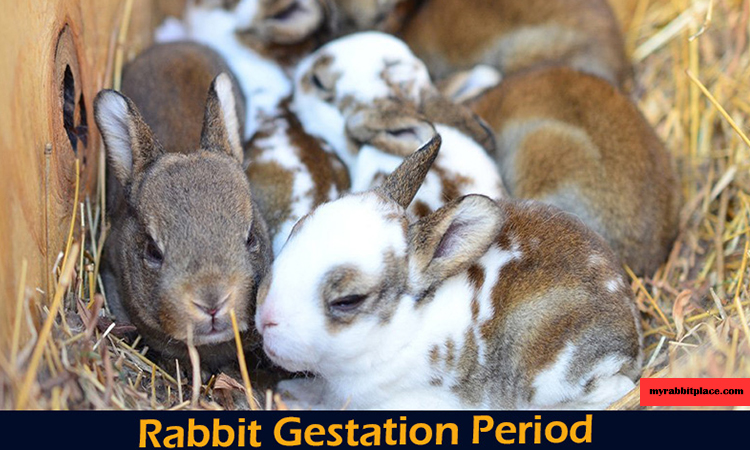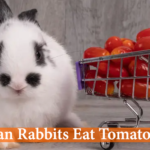Pregnancy is a journey of beauty and miracles, full of expectation, joy and amazement. For people who are privileged to witness this event as caregivers or simply curious bystanders, the more we comprehend the intricacies involved in this process of baby making the better appreciation for the wonders of life we get.
This makes pregnancy potentially very meaningful when it comes to rabbits that are known for their mild mannerism and cute character. As keepers of these delicate pets, it is important to understand rabbit’s gestation period so as not only to ensure their health but also to celebrate new life.
In this blog post, we will attempt to answer the most common question “How long do rabbits stay pregnant”, providing an all-round glimpse into one remarkable angle on rabbit reproduction. The article will cover different stages from conception up to birth which reveal how fascinating motherhood can be to these lovable furry friends.
Note – If you would like to know the exact rabbit gestation date then donot forgot to check our rabbit gestation calculator.
Understanding Rabbit Pregnancy
In the life of rabbits having babies, there is a special cycle that happens just like in many other animals. Yet despite her pregnancy period being so short compared to human beings, it is a fascinating process, full of subtleties.
On the contrary to human pregnancy commonly termed as pregnant, we use the word gestation to describe it in relation to rabbits’ conception and birth. This particular language emphasizes how rabbit reproduction differs from human beings whereby an abridged though complex gestation period has affected the route for motherhood.
These differences deepen our understanding of these amazing and efficient mating systems that characterize these lovely animals and increase our admiration for nature’s handiwork in rabbit reproduction.
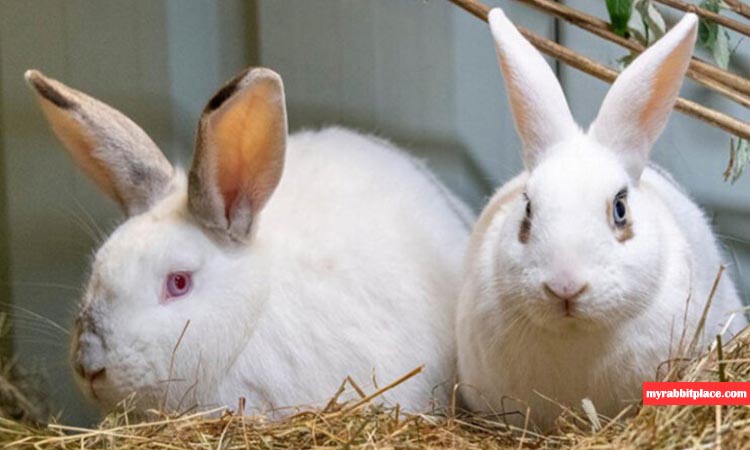
How Long is a Rabbit Pregnant?
The gestation period in rabbits is relatively short and lasts between 28 and 32 days. In other words, from the moment of female fertility till a month passes only when kids arrive.
One key thing is that understanding this timeline helps us get ready with all that is required before the infants are born. It is imperative to provide a safe, cozy place for the mother rabbit during this time.
These few but very important days help us prepare properly so that both the mother and her small ones who will be joining them soon can have an ideal environment that enables them to begin together their journey as rabbit parents.
Learn More About Rabbit Gestation Period.
Stages of Rabbit Pregnancy: From Conception to Birth
Conception
Rabbit pregnancy starts when a female rabbit mates with a male in a process referred to as conception. It is worth noting that rabbits have very high fertility levels and sometimes mating once can lead to conception. Following the sexual act, fertilized ova migrate through the fallopian tubes before embedding on the wall of the uterus.
This critical stage serves as a basis for the development of their offspring. Understanding the complexities of rabbits’ conception helps us better understand their reproductive patterns as well as how fast they can conceive.
It highlights the importance of one mating in view of the abrupt onset of pregnancy in these furry creatures by showing off an amazing adaptive ability and rate of reproduction required to sustain their kind.
Early Development
The period of the initial two weeks of rabbit gestation sees the embryos going through early developmental stages. It is difficult to recognize that a rabbit is pregnant at this time because there are no marked physical changes. However, keen owners may be able to perceive slight alterations in their does’ behavior and appetite.
Although their presence might not be overtly apparent these early days are important for the future kits’ formation. Among other things, increased nesting activity or alterations in eating habits can act as subtle indicators of an ongoing development process.
Therefore, even with a lack of observable cues, these first days form a highly intriguing and crucial part of rabbit pregnancy whereupon it lays a foundation for what follows later on that is more visible about this extraordinary phenomenon.
Visible Changes
Appearance transforms as the rabbit’s pregnancy advances usually after around two weeks. However, with time, a pregnant doe’s abdomen may swell noticeably revealing the growth of kits inside her. In addition, a characteristic behavior starts to occur when she starts pulling fur from her dewlap.
This fur-pulling is purposeful since the doe carefully makes a nice nest for soon-to-arrive kits. Combining swelling of the belly and gathering fur marks an important stage on the journey of pregnancy providing owners with visible signs that life is about to come out.
Knowing these visible changes can help in taking good care of and making appropriate arrangements for their future mother and the coming litter of kits so as to create a comfortable and safe environment.
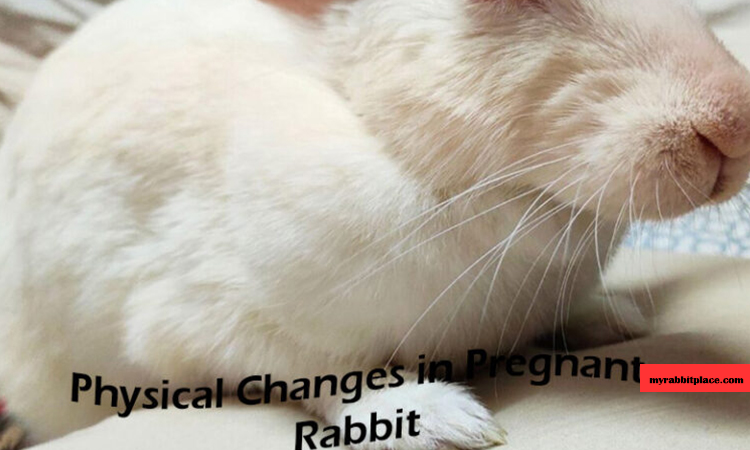
Nesting Behavior
By the end of her gestation, it is a strong indication that a rabbit has started to exhibit nesting behavior. When pregnancy reaches its tail end, it tends to be more secluded and secretive.
For instance, when she is preparing in detail to give birth her kits, it becomes obvious that she has a clear preference for the nest box. This nesting behavior is crucially instinctual as it depicts the do’s preparedness for the impending birthing process.
Owners can see this behavior and realize that the kits are about to arrive and also make sure they provide a quiet, secure and comfortable space where the mother can give birth which will contribute to the overall health of both her as well as her unborn kids.
Birth
The birth of a rabbit is known as parturition or the birthing process and is the climax of the gestation period. This phase happens quickly, often taking only hours. Just born baby rabbits come into this world bald, blind and completely dependent on their mother for warmth and food.
At this stage, there is the role of a mother who must take care of her delicate young ones through nest building and provision of supportive materials necessary to protect them from cold and predators. Seeing how persistent rabbit reproductive instincts can be during parturition demonstrates both the resilience of these creatures’ instincts as well as their newborn kits’ fragile helplessness.
This pivotal moment in these adorable animal’s life cycle marks the beginning of nurturing and growth that will last a lifetime with great attention being paid by the doe.
Care and Support During Pregnancy
A pregnant rabbit must be healthy and strong for her kit to survive birth. The following are some tips on how to take care of her:
Balanced Diet
A balanced diet is very essential for a pregnant rabbit. Check that the doe’s nutrition has fiber, top-quality mental hay, fresh veggies, and a few pellets of rabbit food.
A proper diet is important for the health of both mother rabbits and their young ones inside her womb. For these reasons, good nutrition is necessary throughout pregnancy in rabbits, which then sets up an opportunity for their healthy offspring to grow into adulthood.
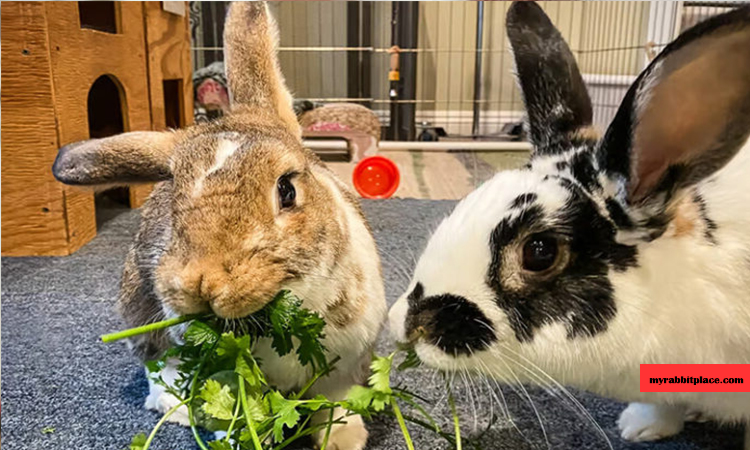
Comfortable Environment
The comfortability of an environment plays a crucial role during a period of being pregnancy in rabbits. You can make such an environment by giving it a nice nest in the form of caged bedding that is clean or soft. This space allows the pregnant rabbit to build a nest, providing a secure and comfortable haven for the upcoming kits.
Rabbit’s natural instincts thrive wherever there’s tranquility in the surroundings henceforth this means less stress for them as she prepares well ahead of giving birth to these offspring she’s carrying inside her body.
Veterinary Care
Regular medical checks are very important to control the health of a pregnant rabbit. The mother rabbit and her offspring must be taken care of during these checkups.
Sharing with a doctor any concerns or changes in behavior will provide insights as well as professional guidance that ensures a smooth sailing pregnancy period.
Early veterinary intervention ensures the timely resolution of possible issues thus ensuring the best outcomes for the expectant mother and her kits expected any time soon.
Monitoring Weight
Weight monitoring of your pregnant rabbit should not be alien to you. It’s important that this happens regularly as it helps ascertain if the pregnant rabbits are gaining weight at normal rates. An early sign of potential complications may include sudden or extreme loss of weight, thus requiring immediate intervention to mitigate health problems.
For successful unproblematic pregnancies therefore it is essential to constantly watch over the size hence monitor closely its overall fitness and well-being.
FAQ
Can you spay a pregnant rabbit?
Neutering is not recommended in a rabbit that is already pregnant. It is best for the spaying to be done prior to pregnancy so as to avoid complications and ensure that the health of the rabbit is maintained. If you are afraid your rabbit may have bred and don’t want any more pregnancies, consult with a veterinarian.
How many kits can a rabbit have in one litter?
The number of kits in a rabbit’s litter varies, however the average range is from four to twelve. Nonetheless, there are some breeds that may give birth to more or less kids at a time.
Do rabbits need assistance during birth?
Typically, people do not have to intervene when rabbits are giving birth. However, it is important to observe doe from a distance until all kits are born successfully. In case trouble or signs of stress come up, consult veterinary assistance immediately.
When can baby rabbits be handled?
During their first few weeks in life, it’s better for their mother rabbit to take care of them alone. Hence, minimum handling must be done during this period as it will cause stress or disrupt the bonding process in the mother. After they open their eyes and are more independent gentle handling may gradually begin.
How soon can a rabbit become pregnant again after giving birth?
Rabbits have earned themselves a reputation for high fertility. In fact, within days of giving birth, a doe can become pregnant again. To prevent unintended pregnancies, male and female rabbits should be kept apart or sterilized through castration and hysterectomy respectively.
Conclusion
Understanding the complexity of pregnancy in rabbits enables an ideal environment for both the mother and her young ones. Thus, gestation being brief yet eventful with delicate indications of conception involved contributes significantly to the fascinating journey of procreation among rabbits. In taking care of our pet rabbits, we should not just stop at offering unlimited support but ensure they have suitable homes where they will live peacefully and healthily.
This will help us take good care of these cute animals by comprehending what pregnancy means for their bodies while enhancing happiness and tranquility as we watch new life unfolding within this family of bunnies.
